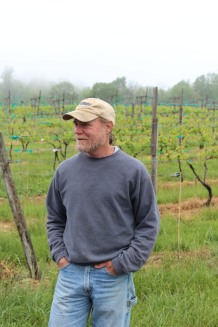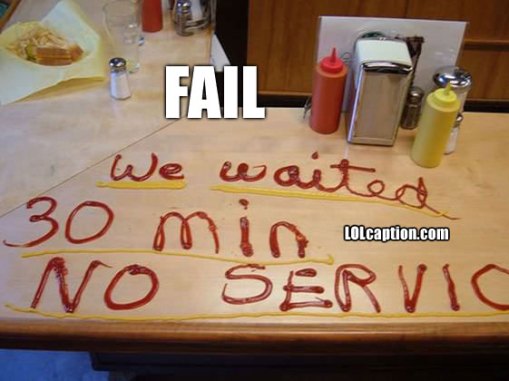During TasteCamp, we got to spend time in 4 different vineyards. We started Saturday with Doug Fabbioli in his vineyard at Fabbioli Cellars, moved to Tarara Winery where Jordan took us to the Nevaeh Vineyard, spent Saturday afternoon with Ben Renshaw, owner/winemaker at 8 Chains North, at Tranquility Vineyard, and ended the VA wine filled weekend with Jim Law at Linden Vineyards (more on this next week).
While I took my little vacation from computers, I was struggling with how to talk about this part of TasteCamp. I totally get that the vineyard is a critical factor in making great wine. I also recognize that I’m not a plant person and I get bored when talk turns to soils, trellising systems, etc. Given this, I tried to make Grape Envy Guy write this post since he geeks out on all things botanical, but his life is even more hectic than mine, and it just wasn’t in the cards. Given this, I figured I had to just bite the bullet and share some general impressions with you.
First of all, all 4 vineyard visits made clear that these winemakers/vineyard managers are passionate about what they do in the vineyard and understand that it has a direct, and centrally important, relationship to what ends up in the bottle. If you haven’t done a vineyard walk, watch for the opportunity to do wine at a local winery. You’re bound to learn something, and it may well change how you think about wine (local or otherwise).
Second, despite the VA wine industry maturing, there’s still a lot of experimentation going on. For example, both Doug Fabbioli and Jim Law talked about experimenting with carmenere, Jordan Harris talked about his lack of satisfaction with his trials of grenache and mouvedre, and everyone talked about trying different clones and rootstocks.
Third, site matters. Grapes will grow on a lot of different sites throughout the state, but they aren’t all ideal. Also, even within a given vineyard site (e.g., the Hardscrabble Vineyard at Linden), there are microclimate issues that need to be considered, soil variations, etc. Winegrowers are getting more and more selective about the sites on which they plant their vineyards, the varieties they plant at each site, etc. That said, economics play a major role in the choices people make, and many are working with less than ideal sites (Fabbioli being one such example).
Fourth, there’s a real tension between the desire to make “fine wine,” which often involves incredibly low yields per acre, and the desire to actually be able to make a living from a vineyard/winery. This also plays a role in bottle price (practices resulting in lower yields may drive a higher bottle price, etc.). This drives choices about trellising, fruit dropping, etc., and I’m starting to understand how this changes the resulting wine (lower yields may result in more concentrated flavors while higher yields may be related to more overt fruitiness by less depth or development of complex flavors). Don’t get me wrong, there’s nothing wrong with any of these choices – it is a business, and people need to make money. That said, it’s really interesting to learn about factors that play a role in and motivate vineyard management choices.
Finally, it was again reiterated that the VA wine world is incredibly collaborative. People share their successes and struggles so that all can improve the quality of the wines being made in the commonwealth.
Because I’m not sure where else I’ll put these things, let me cram a few more pieces of information in here…
Doug Fabbioli is one of the founders of the Piedmont Epicurean Arts Center which was founded to help students learn about the epicurean arts from farm to table so that they can establish their own successful agribusiness and play a role in keeping parts of VA (such as Loudoun County) actively agricultural.
Ben Renshaw was a major trooper since he hosted the Tranquility Vineyard walk the day after his wedding!
Thanks to Otium Cellars, handily across the street from Tranquility Vineyard, for hosting tasting after our vineyard walk. GEG and I still intend to return for a more traditional winery visit and tasting in the, hopefully, not too distant future, but it was nice to get a sneak peek at the Otium releases. My favorite of the ones we tried that day was the ’10 malbec, but I still preferred the two vintages of the Furnace Mountain Red from 8 Chains North that we tasted.










